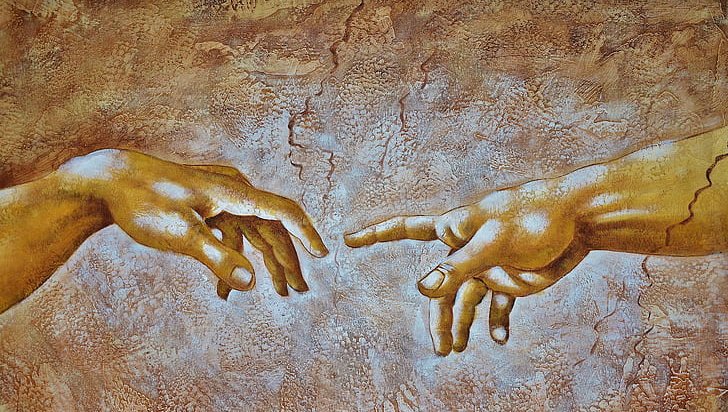
-
HOME
-
WHAT IS STANDOur Mission Our Values Our Help Contact
-
WHAT WE FIGHT FORReligious Freedom Religious Literacy Equality & Human Rights Inclusion & Respect Free Speech Responsible Journalism Corporate Accountability
-
RESOURCESExpert Studies Landmark Decisions White Papers FAQs David Miscavige Religious Freedom Resource Center Freedom of Religion & Human Rights Topic Index Priest-Penitent Privilege Islamophobia
-
HATE MONITORBiased Media Propagandists Hatemongers False Experts Hate Monitor Blog
-
NEWSROOMNews Media Watch Videos Blog
-
TAKE ACTIONCombat Hate & Discrimination Champion Freedom of Religion Demand Accountability
Let’s Make This a Season of Unrequited Hate
“Holding on to anger is like grasping a hot coal with the intent of throwing it at someone else; you are the one who gets burned.”
—Buddha
My brother-in-law, Ron, came home one night to find a man loading a sack with silver, jewelry and other items. The man fled but Ron—athletic and buff—pursued, tackled and wrestled him to the ground. At that point, he would have been well within his rights to punch him out and call the cops. But he didn’t. Instead, he led him back into the house, sat him down at the kitchen table and said, “You look hungry. My wife’s got some soup on. Here’s a bowl.”

As the man ate, Ron got his story. He’d been unemployed, couldn’t find work and was desperate to feed his family. Ron handed him a business card and said, “That’s a buddy of mine. He runs a construction company on the other side of town. He’s hiring—tell him I sent you. Here’s a hundred bucks for your family. Good luck and if I see you here again I will punch your %$#@!! lights out.”
We are not mindless, soulless ciphers, prone to every passing zephyr and helpless in the grip of the laws of physics.
The man did show up—five years later—with his wife, two children and a $400 check to repay my brother-in-law for his kindness with interest. He’d worked his way up to foreman at the construction company.
Ron could have called the cops that night, but instead he chose to take the more difficult path: kindness in the face of evil.
And there’s no doubt that—knowing my brother-in-law—had he caught the man engaged in thievery again, he indeed would have punched his %$#@!! lights out. (My brother-in-law always kept his promises.)
Isaac Newton’s Third Law of Motion states that, for every action, there is an equal and opposite reaction. Unfortunately, Newton did not add the corollary that, for human beings, it doesn’t have to be that way. Just because someone spits on you, there’s no need to spit back. Just because your neighbor calls you a name for your opinions and beliefs, you are not obligated to return the favor. We are not mindless, soulless ciphers, prone to every passing zephyr and helpless in the grip of the laws of physics. We are sentient beings of conscience and we shame our species each time we surrender to stimulus-response behavior against our fellows.
Just as there is unrequited love—the stuff of legends and countless pillows moist with tears—there is also unrequited hate, much less written about but infinitely more desirable. L. Ron Hubbard, founder of Scientology, said it best: “A primary trap is to succumb to invitations to hate.”
And a trap it is. Just as a trap snaps shut to ensnare its unwitting victim, so too does the conditioned reflex to respond to hate with hate trap both hater and hated in a dark place with no light of mercy or love. Communication is shut out and along with it, any hope of parlay or understanding.
Of course, defend hearth and home. Of course, get the family out of harm’s way. Of course, install the security system on the house of worship. Do what you have to do to protect those you need to protect—but be sure you do it motivated by love for those you hold dear and not hatred for others.
Every so often someone defies the laws of physics and responds to hate with love. It’s not so much turning the other cheek as it is offering one’s hand. A hate murder of three Muslim students in North Carolina resulted not in condemnation, protests and anger, as one might suspect, but in a campaign to feed the hungry with over 300 Muslim groups springing up across the U.S., giving canned food and meals to the needy.
In Nebraska, a rabbi threatened by a white supremacist ignored the police warnings and instead visited the man, discovered he was disabled and offered help. Shortly thereafter, the man renounced his bigotry, converted to Judaism and, at his death, was celebrated at a memorial service attended by his hundreds of new Jewish friends.
In North Little Rock, Arkansas, a community rallied around a Black family subjected to hateful threats for the Black Santa display on their front lawn. Shortly after news of the threat was posted on social media, Black Santas began popping up on lawns throughout town—Christian families, Jewish families, Black and white and Asian households all participating in an outpouring of love against hate.
The practice of unrequited hate is not so difficult to cultivate as a habit. One merely has to have a bit of courage to start.
Caution: This sort of thing can be contagious.









